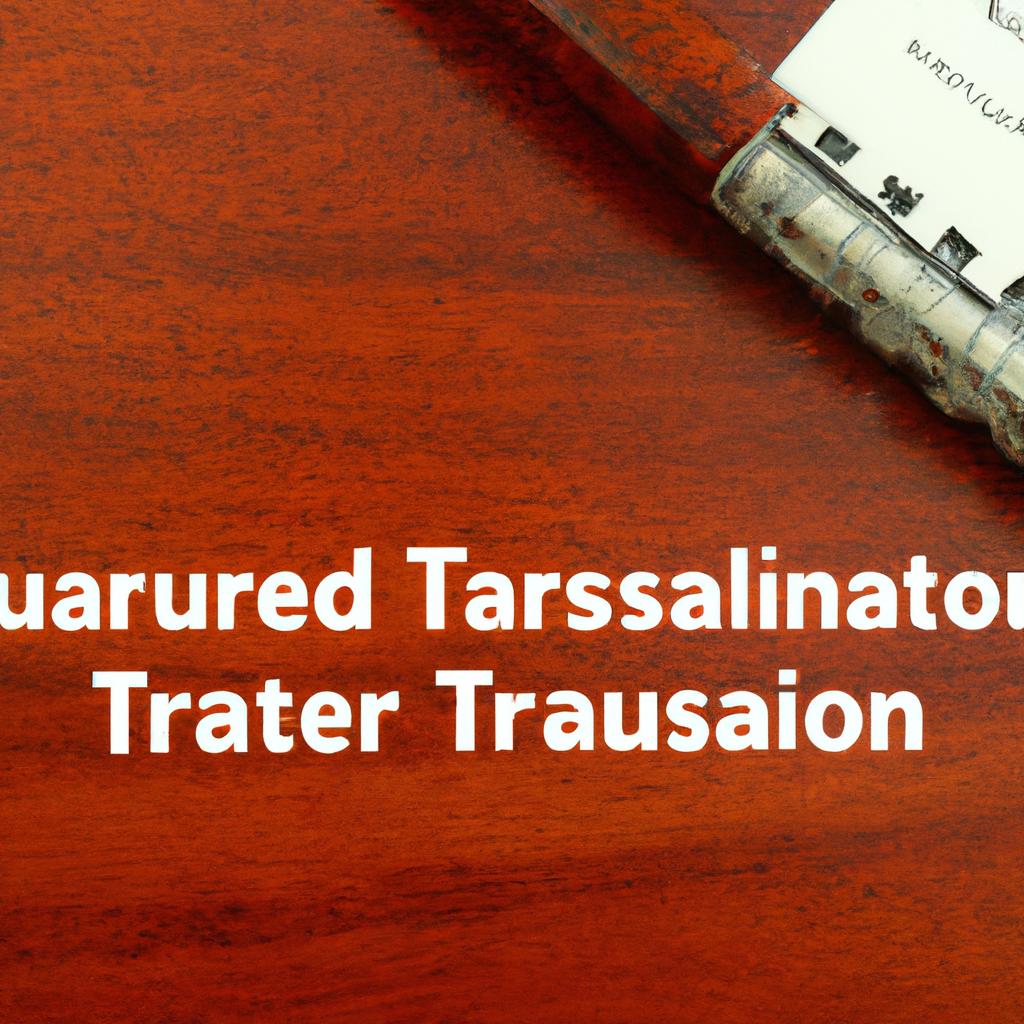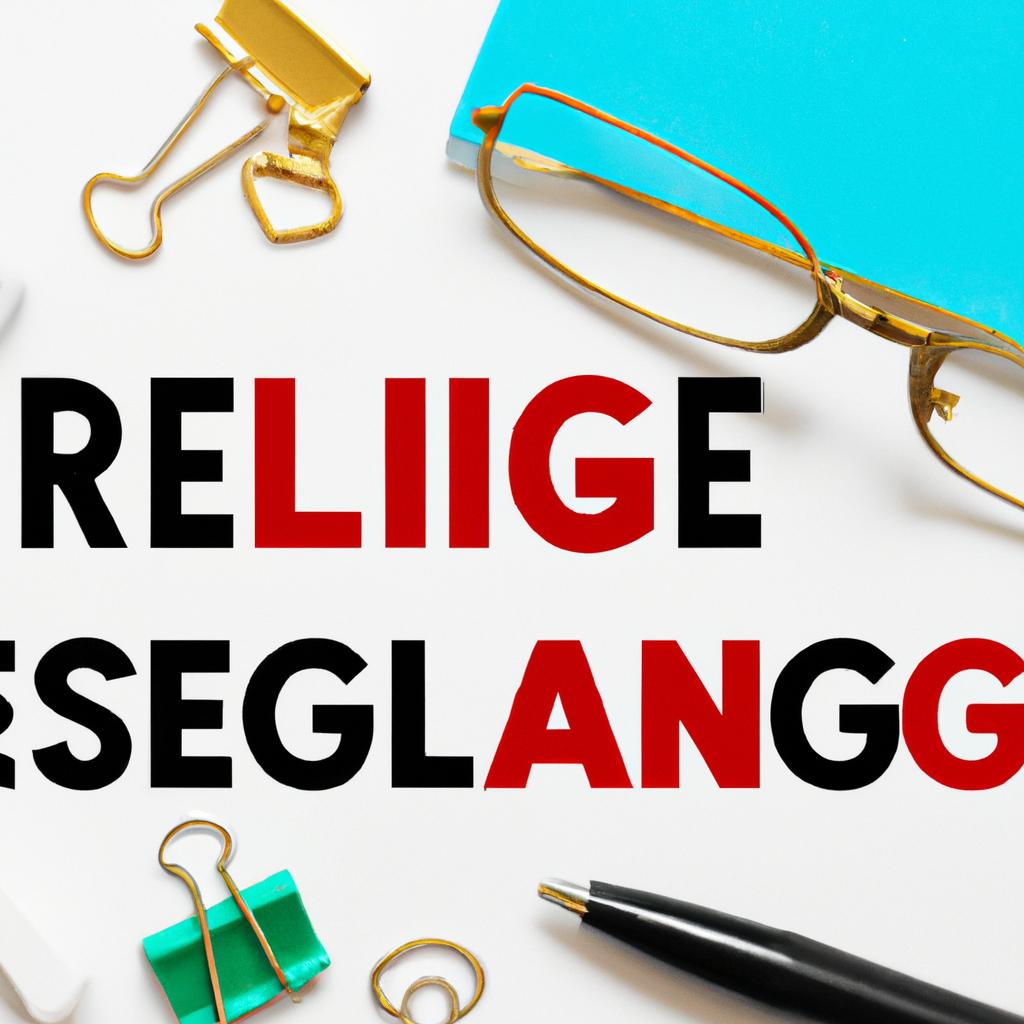In the intricate world of estate planning and administration, trusts stand as powerful tools to effectively manage and distribute assets in accordance with one’s wishes. However, navigating the process of settling an estate with a trust requires a keen understanding of legal requirements and meticulous attention to detail. At Morgan Legal Group, we specialize in guiding clients through the complexities of trust administration, ensuring a smooth and seamless transition of assets to beneficiaries. Join us as we delve into the essential steps and considerations involved in settling an estate with a trust, providing clarity and peace of mind in this crucial aspect of estate planning.
Navigating the Role of the Trustee
Creating a trust is a vital part of estate planning, as it allows you to control how your assets are distributed after your passing. As a trustee, you have a critical role in ensuring that the wishes outlined in the trust are carried out smoothly. Here are some key tips for successfully :
- Understand the Trust: Familiarize yourself with the terms of the trust document, including the assets involved, beneficiaries, and any specific instructions or conditions. This will guide your decision-making process and help you fulfill your duties effectively.
- Communicate with Beneficiaries: Keeping beneficiaries informed about the trust’s progress and decisions is crucial for transparency and trust-building. Regular updates and clear communication can help prevent misunderstandings and conflicts down the line.
When it comes to settling an estate with a trust, meticulous organization and attention to detail are essential. As a trustee, it’s crucial to keep accurate records of all transactions, correspondence, and decisions related to the trust. Here are some additional pointers for managing the estate settlement process:
- Seek Professional Guidance: Estate laws and responsibilities can be complex, so don’t hesitate to consult with legal and financial professionals for guidance. They can provide valuable expertise and ensure that you adhere to all legal requirements.
- Stay Organized: Keep detailed records of all trust-related transactions, including expenses, distributions, and any correspondence. This will not only help you stay on top of the process but also serve as a valuable resource in case of any questions or disputes.

Distributions and Disbursements: Understanding the Process
When settling an estate with a trust, it is crucial to follow the proper procedures to ensure a smooth and efficient process. The first step is to gather all necessary documents, including the trust agreement, asset information, and any relevant legal paperwork. Once this information is collected, the trustee must notify beneficiaries of their rights and provide them with a copy of the trust agreement.
Next, the trustee must inventory and appraise all trust assets. This step is essential to determine the value of the estate and ensure that all assets are accounted for. Once the assets have been appraised, the trustee can begin the distribution process. This involves transferring assets to beneficiaries according to the terms outlined in the trust agreement. Throughout this process, it is important to keep detailed records of all disbursements and transactions to ensure transparency and compliance with the law. Following these steps will help settle an estate with a trust in an organized and legally sound manner.
| Key Steps | Description |
|---|---|
| Gather Documents | Collect trust agreement, asset information, and legal paperwork. |
| Inventory Assets | Appraise all trust assets to determine the estate’s value. |
| Distribute Assets | Transfer assets to beneficiaries according to the trust agreement terms. |
| Record Keeping | Keep detailed records of all transactions and disbursements. |

Managing Debts and Taxes Within the Estate
When settling an estate with a trust, it is crucial to understand the process and steps involved to manage debts and taxes effectively. Trusts are powerful estate planning tools that can help streamline the distribution of assets and minimize the impact of taxes on the estate. Here are some key considerations when :
- Evaluate Trust Assets: Begin by identifying and evaluating all assets held within the trust. This includes real estate, investments, bank accounts, and personal property. Knowing the value of these assets is essential for accurate tax calculations and debt repayment.
- Settle Outstanding Debts: Prioritize settling any outstanding debts of the deceased individual before distributing assets to beneficiaries. This may include mortgages, loans, credit card debt, and other financial obligations. By addressing debts promptly, you can avoid complications and ensure a smooth transfer of assets.

Ensuring Compliance with Legal Requirements
When settling an estate with a trust, it is crucial to ensure compliance with all legal requirements to avoid any potential complications or disputes. One important step is to review the trust document thoroughly to understand the terms and conditions set forth by the grantor. This will help in determining the assets that are included in the trust and how they should be distributed to the beneficiaries. It is also essential to gather all necessary documentation, such as bank statements, investment accounts, and property deeds, to accurately assess the value of the trust estate.
To settle an estate with a trust effectively, it is recommended to work closely with an experienced attorney who specializes in trust administration. The attorney can provide guidance on the legal requirements for distributing assets, paying any outstanding debts or taxes, and filing necessary documents with the court. Additionally, the attorney can help ensure that all beneficiaries are notified of their rights and entitlements under the trust, and that any disputes are resolved in a timely and efficient manner. By following these steps and seeking professional advice, you can navigate the complexities of settling an estate with a trust while .
| Review Trust Document | Gather Documentation |
| Work with Attorney | Notify Beneficiaries |
Q&A
Q: What is a trust and how is it different from a will when it comes to settling an estate?
A: A trust is a legal arrangement where a trustee holds and manages assets on behalf of beneficiaries. Unlike a will, a trust can bypass probate and provide more control over how assets are distributed.
Q: How do you start the process of settling an estate with a trust?
A: The first step is to review the trust document and identify the assets held within the trust. You may need to gather important documents such as deeds, titles, and financial statements.
Q: What role does the trustee play in settling an estate with a trust?
A: The trustee is responsible for managing and distributing the assets according to the terms of the trust document. They have a fiduciary duty to act in the best interests of the beneficiaries.
Q: Can disputes arise when settling an estate with a trust?
A: Yes, disputes can arise if there are disagreements among beneficiaries or if the trustee is not properly carrying out their duties. It’s important to seek legal advice if disputes arise.
Q: Are taxes a consideration when settling an estate with a trust?
A: Yes, taxes may need to be paid on assets within the trust. It’s important to consult with a tax professional to understand the tax implications of settling an estate with a trust.
Q: How long does it typically take to settle an estate with a trust?
A: The time it takes to settle an estate with a trust can vary depending on the complexity of the assets and any disputes that may arise. It’s important to be patient and thorough throughout the process.
The Way Forward
In conclusion, settling an estate with a trust can be a complex process, but with the right guidance and understanding, it can be navigated smoothly. By following the necessary steps and seeking professional advice when needed, you can ensure that your loved one’s assets are distributed according to their wishes. Remember, each estate is unique and may require different considerations, so always consult with an estate planning attorney to make sure everything is in order. We hope this article has provided you with valuable insight into the process of settling an estate with a trust. Good luck on your journey towards finalizing your loved one’s legacy.
 A trust is a legal entity created to hold and manage assets for the benefit of individuals or organizations. It is often used in estate planning to transfer wealth to future generations while minimizing taxes and potential complications. However, managing a trust can be a complex process, especially when it comes to settling an estate with a trust. In this article, we will discuss the steps involved in settling an estate with a trust and provide valuable tips for a smooth and successful process. Whether you are a trustee or a beneficiary of a trust, this guide will help you understand how to settle an estate with a trust effectively.
A trust is a legal entity created to hold and manage assets for the benefit of individuals or organizations. It is often used in estate planning to transfer wealth to future generations while minimizing taxes and potential complications. However, managing a trust can be a complex process, especially when it comes to settling an estate with a trust. In this article, we will discuss the steps involved in settling an estate with a trust and provide valuable tips for a smooth and successful process. Whether you are a trustee or a beneficiary of a trust, this guide will help you understand how to settle an estate with a trust effectively.
Understanding the Trust and its Terms
Before we dive into the process of settling an estate with a trust, it is essential to have a clear understanding of the trust and its terms. A trust is typically created by an individual (settlor) who transfers assets into the trust with instructions for how those assets should be administered and distributed. A trustee, who can be either an individual or a corporate entity, is responsible for managing the assets according to the terms of the trust.
The terms of a trust may vary depending on the type of trust and the intention of the settlor. It is crucial to review the trust document carefully and consult with an attorney to understand the terms and the duties and responsibilities of the trustee.
Gathering Documents and Information
The first step in settling an estate with a trust is to gather all the necessary documents and information. This includes the trust document, death certificate of the settlor, and any other relevant legal documents. It would be helpful to keep all the documents organized and easily accessible.
Additionally, it is essential to gather information about the assets held in the trust, such as bank accounts, property deeds, investment accounts, and insurance policies. This information will be crucial in determining the value of the trust and the distribution of assets.
Notifying Beneficiaries and Creditors
Once all the necessary documents and information are gathered, the next step is to notify the beneficiaries and creditors of the trust. The trustee is responsible for providing written notice to all beneficiaries named in the trust document. It is also advisable to inform any creditors to ensure all debts are paid off before the distribution of assets.
Managing the Trust Assets
As a trustee, managing the assets held in the trust is a significant responsibility. The trustee must be diligent in preserving and managing the assets in the best interest of the beneficiaries. This includes maintaining accurate records of all transactions, paying bills and taxes, and managing investments. It is advisable to seek professional advice from a financial advisor or an attorney to fulfill these duties effectively.
Filing Tax Returns
The trustee is also responsible for filing tax returns on behalf of the trust. This includes income tax returns, estate tax returns, and gift tax returns, if applicable. It is essential to consult with a tax professional to ensure all tax requirements are met, and any potential tax implications are addressed.
Distributing Trust Assets
Once all the necessary steps are completed, the trustee can begin the process of distributing trust assets to the beneficiaries. The distribution of assets must be carried out according to the terms of the trust document and in compliance with any applicable laws and regulations.
Benefits and Practical Tips
Settling an estate with a trust can have several benefits, such as avoiding a lengthy and costly probate process, maintaining privacy, and minimizing estate taxes. However, the process can be overwhelming and complex. Below are some practical tips for settling an estate with a trust successfully:
1. Seek Professional Help: Managing a trust involves legal and financial complexities, and it is crucial to seek the assistance of professionals, such as an attorney and a financial advisor, to ensure all legal and tax requirements are met.
2. Keep Records: As a trustee, it is essential to keep accurate records of all trust transactions, including income, expenses, distributions, and taxes. These records will be helpful in case of any legal disputes or audits in the future.
3. Communicate with Beneficiaries: Effective communication with beneficiaries is vital in maintaining transparency and avoiding any conflicts. Keep beneficiaries informed about the trust’s progress and any decisions made, including the distribution of assets.
4. Be Diligent: As a trustee, you have a fiduciary duty to act in the best interest of the beneficiaries. Therefore, it is essential to be diligent in managing trust assets and fulfill all duties and responsibilities with the utmost care and attention.
Case Study: The Importance of Proper Estate Planning
A recent survey revealed that only 42% of Americans have a will, and only half of those have an estate plan. This lack of preparation can lead to complications and conflicts when it comes to settling an estate. Let’s take a look at a real-life case study to understand the importance of proper estate planning and how a trust can help in smooth estate settlement.
John and Mary were a married couple with two children. They owned a family business and some significant assets. Unfortunately, John passed away suddenly, leaving behind Mary and their children. John and Mary had a will, but they didn’t have an estate plan, and their assets were not held in a trust. As a result, Mary had to go through a lengthy and expensive probate process to transfer the assets to her name.
Additionally, the lack of an estate plan resulted in significant estate taxes, which depleted a significant portion of the family’s assets. If John and Mary had created a trust and included a proper estate plan, they could have avoided the probate process and minimized the tax burden on their beneficiaries.
First-Hand Experience:
As a trustee, Jane had to manage her father’s trust after his passing. She found the process to be overwhelming and complex, but with the help of professionals and following the trust’s terms, she was able to successfully settle the estate. Jane advises others to seek professional help, keep records, and communicate with beneficiaries to ensure a smooth estate settlement process.
In conclusion, settling an estate with a trust can be a complex process, but understanding the trust and its terms, gathering necessary documents and information, communicating with beneficiaries, and seeking professional help can make the process easier. Proper estate planning, including the creation of a trust, can also help avoid potential complications and minimize taxes. Hopefully, this guide has provided valuable insights on how to settle an estate with a trust and the benefits of proper estate planning.

